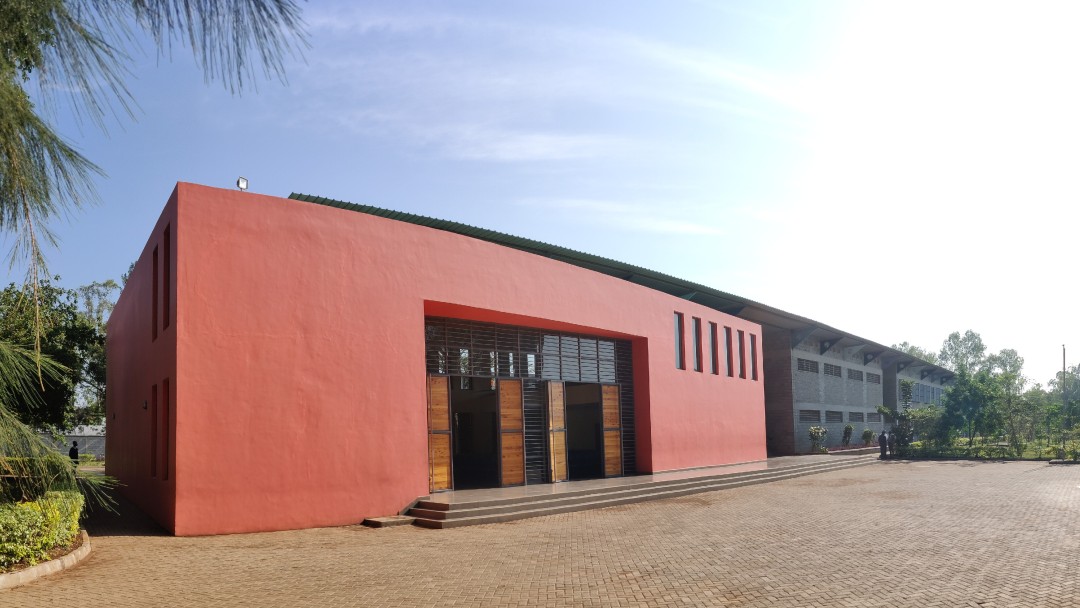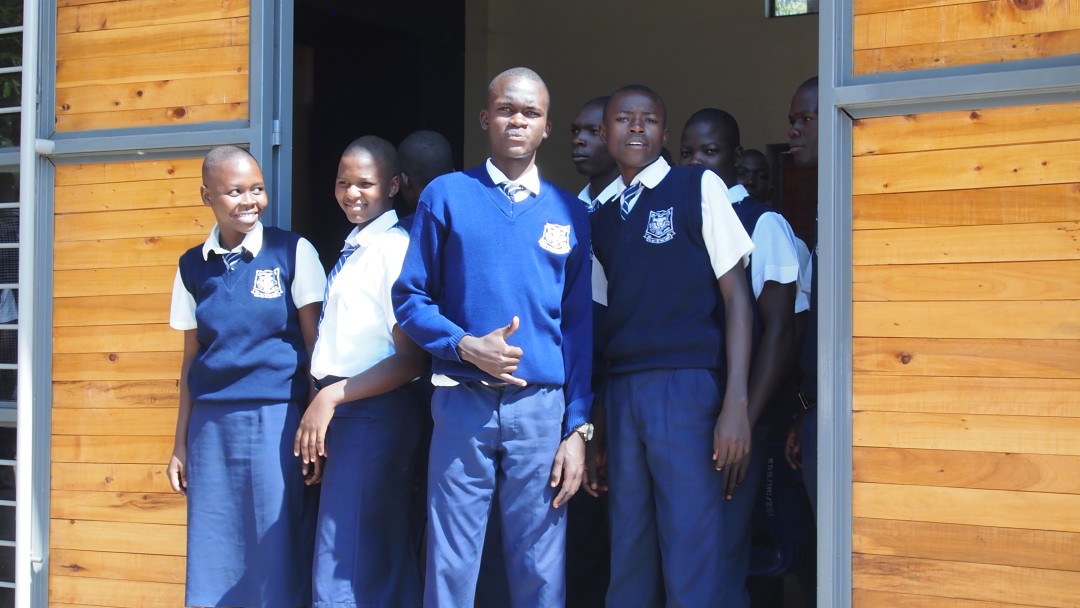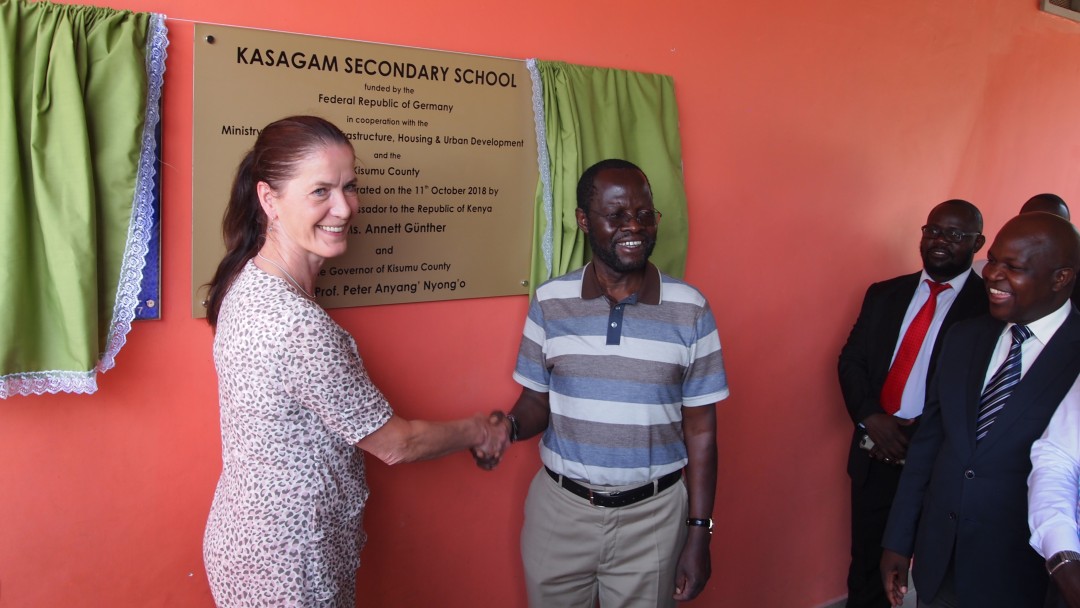News from 2018-11-08 / KfW Development Bank
Opportunities for children from Kenyan slums

Making a start in life is not easy for children and young people growing up in the slums of Kenyan cities. The Kenyan government, with support from KfW, is focusing on education as a gateway to opportunity. As a visible expression of this successful cooperation, the newly-built Kasagam Secondary School in western Kenya was inaugurated in October with a formal ceremony in the presence of the county’s governor, Prof Peter Anyang’ Nyong’o, as well as other members of the government and the German ambassador Annett Günther.
The school building works were part of the Schooling in Impoverished Urban Areas project, which KfW Development Bank has been financing on behalf of the German Federal Government since 2003. By 2019, a total of 27 new primary and secondary schools will have been completed in Nairobi, Kisumu, Mombasa and Naivasha, with space for 37,000 students per year. The architecture of the new school buildings is distinctive. Simple touches such as rooms flooded with light, along with child-friendly play and sports facilities, create an environment conducive to learning.
Education in Kenya
The importance placed on education in Kenya has increased considerably in recent years. Although education was once the preserve of the rich, the country has made great efforts to extend educational opportunities to broader sections of the population. In 2002, the then newly elected government under President Kibaki decided to abolish fees for primary schools. This led to a massive increase in enrolment rates. At the same time, primary schools in poorer districts in particular were so overcrowded that their capacities were completely overburdened and no longer sufficient for adequate teaching.
It was against this backdrop that the German Federal Government committed the first funds for the Schooling in Impoverished Urban Areas project, which is one of the two pillars of KfW’s involvement in primary and secondary education. The second pillar is the Wings to Fly scholarship programme for secondary school pupils, which offers above-average pupils from poor backgrounds an opportunity to benefit from vocational training and upward social mobility. Altogether, the financing volume for both components comes to around EUR 53 million.
Education also remains a priority for the Kenyan government, which is consequently investing around EUR 2.45 billion a year in the sector. These efforts are paying off, with the net school enrolment rate now at 95%. In 2017, the Kenyatta administration decided to also abolish fees for secondary schools, facilitating access to higher education. In this area, too, educational success will depend on the Kenyan government building more schools in the future. Thanks to the project, some good examples have been set for school infrastructure.

Shifting focus to more vocational training
Given the progress made in primary and secondary education, in addition to the country’s strong economic development, the German Federal Government and the Kenyan Government have agreed to refocus their programme plans towards more vocational training and job creation as the logical next step. Vocational training may act as a bottleneck, yet at the same time, it represents a gateway to young people’s integration into the labour market. The first task is to make it attractive in Kenya. In this spirit, the Wings to Fly programme was expanded to include scholarships for vocational training during the ongoing third phase. Other programmes include the Skills Initiative for Africa and centres of excellence for vocational training with close industry ties. Strong private sector involvement is a common feature of both projects. The intention is to combine theory and practice in the style of the German dual training system, which involves both on-the-job training and classroom learning, in order to improve apprentices’ prospects in the labour market.
This, in turn, means that the opportunities for children from the slums will also present an opportunity for Kenya and its economy. Ambassador Annett Günther provided an apt summation in her speech marking the opening of Kasagam Secondary School: "Education is key, both to the economic development of the country and to the personal development of every individual."


Share page
To share the content of this page with your network, click on one of the icons below.
Note on data protection: When you share content, your personal data is transferred to the selected network.
Data protection
Alternatively, you can also copy the short link: https://www.kfw-entwicklungsbank.de/s/enzBWrMC.B4zA
Copy link Link copied